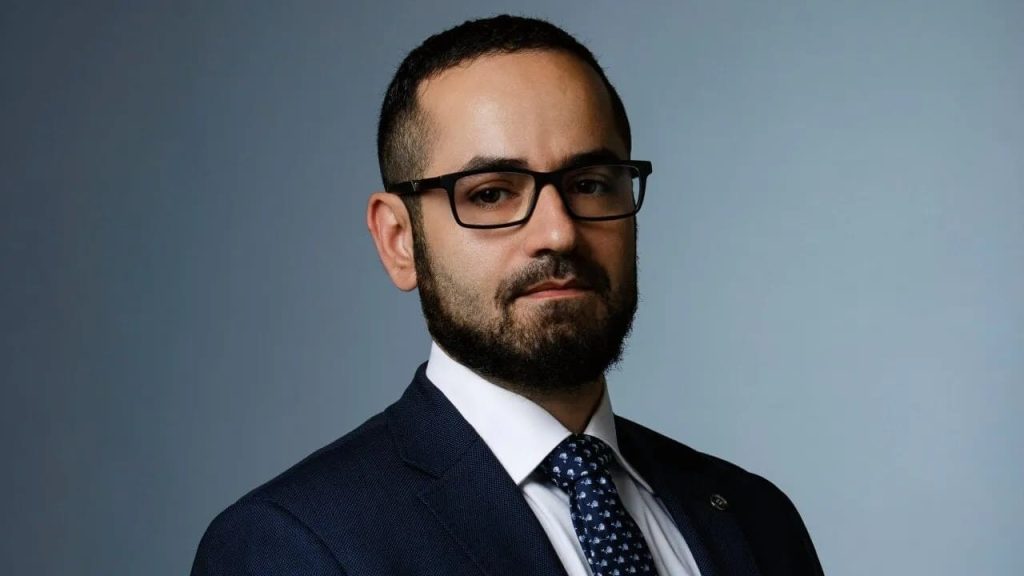The family of Tigran Gambaryan, a senior executive at Binance, is urgently appealing to the Nigerian government for his release as concerns about his health continue to grow. They report that he is “no longer able to walk,” amplifying calls for his immediate release and shedding light on the challenges foreign executives face in Nigeria.
Background: Arrest and Detention
Tigran Gambaryan was arrested in Lagos in February 2024 during a widespread crackdown on cryptocurrency operations in Nigeria. The Nigerian authorities allege that he was operating Binance without the necessary local licenses and was involved in activities violating Nigerian financial regulations, including:
- Operating a Cryptocurrency Exchange Without Authorization
- Money Laundering
- Facilitating Unregulated Financial Transactions
Since his arrest, Gambaryan has remained in detention without bail, a situation that has drawn considerable criticism both domestically and internationally. Concerns over the transparency of the investigation and the fairness of legal proceedings for foreign nationals have intensified.
The Family’s Appeal
In their recent statement, Gambaryan’s family expressed deep worries regarding his declining physical and mental health during detention. They urged Nigerian authorities to allow him immediate medical care and to consider his release on humanitarian grounds. Furthermore, they voiced concerns about his access to legal representation, suggesting his rights to a fair trial may be compromised.
This appeal coincides with increased scrutiny of Nigeria’s judicial system, particularly regarding cases involving foreign nationals in business and financial disputes. Critics assert that the prolonged detention of foreign business executives can harm Nigeria’s reputation as a viable destination for international investment.
International Response and Criticism
The Gambaryan case has captured attention not only from his family and legal team but also from human rights organizations and international business communities. Several advocacy groups have condemned the Nigerian government for what they call the “arbitrary detention” of Gambaryan, calling for his immediate release and a thorough investigation into the circumstances of his arrest.
International business organizations have raised alarms about the implications of Gambaryan’s detention for foreign investors in Nigeria. Once seen as one of Africa’s most promising emerging markets, Nigeria now faces questions regarding the safety and security of foreign business operations. The case highlights the risks foreign executives encounter, especially in sectors like cryptocurrency that often navigate unclear regulatory frameworks.
Broader Implications for Foreign Businesses in Nigeria
Gambaryan’s arrest underscores the challenges foreign businesses face in Nigeria, particularly in navigating the country’s complex regulatory landscape. While Nigeria offers significant opportunities for growth, it also presents legal and bureaucratic hurdles that can pose serious risks to foreign companies and their executives.
Regulatory Challenges
Nigeria’s regulatory environment is often described as opaque and inconsistent, especially in emerging sectors like cryptocurrency and fintech. The government’s fluctuating stance on cryptocurrency—alternating between outright bans and cautious acceptance—leaves companies in precarious positions, risking violations of laws that are not well-publicized or understood.
For foreign executives like Gambaryan, the stakes are considerably high. Without a deep understanding of local laws and the ability to navigate the unpredictable regulatory environment, they face severe legal consequences. The crackdown on exchanges like Binance illustrates this challenge, where charges against Gambaryan may arise from a regulatory framework that is not clearly defined or communicated.
Impact on Foreign Investment
The Gambaryan case could deter foreign investment in Nigeria. Potential investors might view his treatment as a warning sign of the challenges they could encounter. This perception is particularly relevant in sectors already under scrutiny, such as cryptocurrency and fintech.
Foreign businesses may begin to question whether the potential rewards of operating in Nigeria outweigh the risks, particularly if the legal environment appears hostile or unpredictable. The fear of arbitrary detention or legal repercussions due to unclear regulations could lead to hesitance in entering or expanding operations in Nigeria. This reluctance could have long-term repercussions for the country’s economy, which relies heavily on foreign investment for growth and development.
Additionally, the Gambaryan situation underscores the necessity for legal protections for foreign nationals operating in Nigeria. Investors may demand stronger legal frameworks and guarantees before committing capital, potentially prompting the Nigerian government to reform its regulatory environment and judicial processes.
Human Rights Concerns
The Gambaryan case also raises significant human rights concerns. Allegations of deteriorating health conditions and restricted access to legal representation suggest that his basic rights may not be fully safeguarded. Human rights organizations have criticized the prolonged detention without due process, regardless of the charges against him.
The family’s claim that Gambaryan is “no longer able to walk” due to detention conditions adds a serious dimension to the situation. If verified, such reports could lead to international condemnation and potentially invoke the interest of international legal bodies or human rights courts.
Calls for Reform
In light of growing criticism, there have been increasing calls for reform within Nigeria’s legal and regulatory systems, particularly concerning the treatment of foreign nationals. Legal experts and business leaders advocate for clearer guidelines and protections for foreign businesses, especially in the evolving cryptocurrency sector.
One proposed avenue for reform is establishing specialized courts or legal mechanisms to handle disputes involving foreign companies. This would ensure that these cases are managed by judges and legal professionals with expertise in international business law. Additionally, calls for improved communication from regulatory bodies are crucial for foreign businesses to understand and comply with local laws.
Conclusion: A Turning Point for Nigeria?
The case of Tigran Gambaryan may represent a turning point for Nigeria regarding its approach to foreign investment and the treatment of foreign nationals. Mishandling the case could lead to a decline in investor confidence and further isolate Nigeria from the global business community. Conversely, if the Nigerian government leverages this situation to implement meaningful reforms, it could enhance the country’s appeal as a destination for foreign investment and improve its international reputation.
As the Gambaryan family continues to plead for his release, the international community watches closely, anticipating Nigeria’s response to this complex legal and regulatory challenge. The resolution of this case could shape Nigeria’s engagement with the global business community, determining whether the country emerges with its reputation intact or tarnished. The stakes have never been higher.























